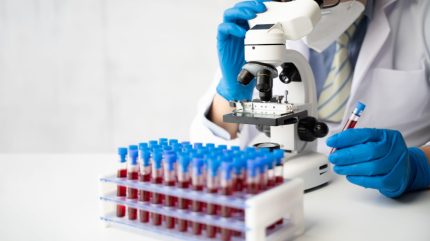
The University of Birmingham researchers have identified CD70 as a key target to reduce the risk of graft-versus-host disease (GVHD) in blood cancer patients post-stem cell transplant.
GVHD causes the immune cells of the donor to attack the patient’s body by mistake, leading to potentially critical complications.

Discover B2B Marketing That Performs
Combine business intelligence and editorial excellence to reach engaged professionals across 36 leading media platforms.
Funded by Blood Cancer UK, the research has been led by Dr Kriti Verma and has involved Professor Paul Moss and his team.
Their focus was on the CD70 molecule on the surface of the T-cells, which becomes prevalent shortly after a transplant.
They discovered that the presence of CD70 on T-cells within the first two weeks is highly predictive of GVHD development. These cells were active and exhibited a distinct genetic profile conducive to rapid energy use and multiplication – factors that contribute to the inflammatory responses causing GVHD.
University of Birmingham’s Department of Immunology and Immunotherapy Postdoctoral Research Fellow Dr Verma stated: “T-cells are key players in the body’s immune response, and CD70 shows up on them when they’re highly active — especially when they’re responding aggressively to what they see as foreign, such as the patient’s own cells in graft-versus-host disease (GVHD).

US Tariffs are shifting - will you react or anticipate?
Don’t let policy changes catch you off guard. Stay proactive with real-time data and expert analysis.
By GlobalData“Interestingly, in those with acute GVHD, the number of CD70-positive T-cells spiked, and these cells were found in tissues affected by GVHD. Our lab tests showed that blocking the interaction between CD70 and its partner molecule, CD27, reduced the aggressive behaviour of these T-cells.
“This suggests that interrupting this CD70-CD27 signal could be a new way to treat or even prevent GVHD by calming down the overactive immune response.”
The research team aims to initiate clinical trials to develop an early diagnostic test for GVHD. No such tests are currently available.
They also plan to create treatments targeting CD70 to better control the disease, leaving the whole immune system unsuppressed.
Blood cancer is the UK’s fifth most common malignancy.




